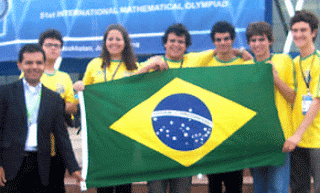Search for "Brazil" and you will find the most relevant academic papers published about Brazilian's IS market and research results in English. It is so interesting and large that people interested would take days (if not week) to read it all. It is a blessing for me as an Systems Analyst who rely on these subjects to feed this blog and my curiosity.
Reading through so paper I found this: The Americas Conference on Information Systems (AMCIS) that will take place in Peru this year, 2010. This is a global initiative from The Association for Information Systems (AIS) that envisages, among other things:
- creating a professional identity for IS educators, researchers and professionals
- promoting communications and interaction among members
- establishing standards of practice, ethics, and education in the IS community
I will study this community a bit further and hopefully I will be able to participate and add value to it.



































